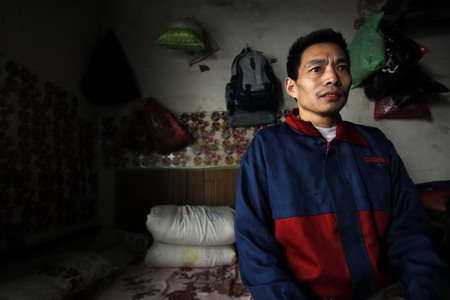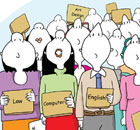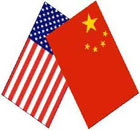Society
China fights growing problem of tuberculosis
(Agencies)
Updated: 2010-01-06 09:10
 |
Large Medium Small |
GUANGZHOU, China: China, saddled with the world's second largest tuberculosis burden after India, is fighting an uphill battle against drug-resistant forms of the disease which will only drain the country's health budget.
Drug-resistant TB, far more expensive to treat, emerges when patients fail to follow treatment regimens and take substandard drugs or stop treatment too early.
Liu Zhongwu, a stonecutter working in southern China, for example, stopped taking his TB medication midway through a standard six-month course in 2007 because it was too costly.
"Even though one or two drugs were free, I had to pay 500 yuan ($73) a month for other drugs (to reduce side effects) and the side effects were bad, I suffered terrible gastric pain and had to stop work, I didn't even have energy to walk," said Liu.
It is precisely this sort of behaviour that health experts are trying to stop because if the TB bacteria is not fully eliminated, it can mutate, resurge later and become resistant to the small arsenal of drugs that can fight the disease.
China has 4.5 million TB cases currently; and each year 1.4 million people fall ill with the disease. TB killed 160,000 people in China in 2008, according to the World Health Organisation.
TB killed 1.8 million people across the world in 2008, or a person every 20 seconds. It is not only a scourge in poor countries but also in the West, where it has flared anew in the last 20 years because of AIDS, which weakens the immune system.
|
||||
In such cases, patients need to take drugs for up to two years and the worst type of TB, for which there is no cure, kills one out of every two patients.
"If there are more drug-resistant cases, the cost of TB treatment will rise by a lot, that's for sure. With drug resistance, we can't use first-line drugs and other drugs cost a lot more," said Lin Yan, director of the China office of the non-profit International Union Against TB and Lung Disease.
"When these patients infect others, the others will get drug-resistant TB. That increases the cost of treating that person and increases the chances of him not recovering."
Regular TB costs 1,000 yuan to treat in China but drug-resistant TB ranges from 100,000 to 300,000 yuan per person, said Zhong Qiu of China's TB Expert Consultative Committee.
China ranks second in the world with 112,000 drug-resistant TB cases in 2007, after India with 131,000. Russia has 43,000 cases, while South Africa has 16,000 and Bangladesh 15,000.
China spent $225 million on tackling TB in 2008, up from $98 million in 2002, according to WHO. These figures do not take into account what patients pay out of their pockets, typically between 47 and 62 percent of their hospital bills.
Drug-resistant TB made up 27.8 percent of all TB cases in China in 2000 versus five percent in advanced countries.













